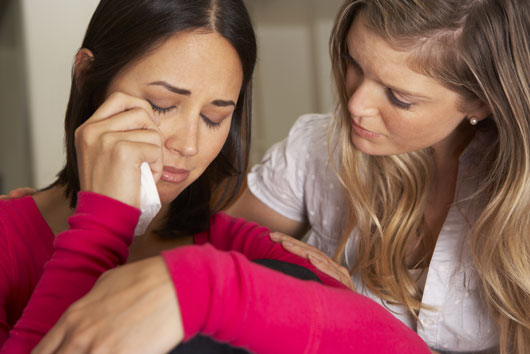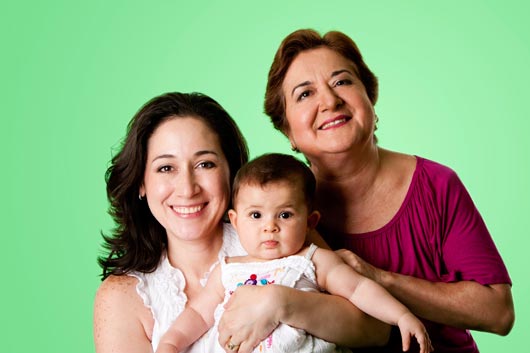
As The Guardian reports regarding miscarriage statistics, around one in five pregnancies end in miscarriage, but while most of us are comfortable with sharing our joy with others, we struggle to share our sadness. Despite feeling devastated and isolated after a miscarriage, most women refrain from telling others outside of their immediate families because it never feels like the proper time or the place. Others refrain from bringing their personal life to work, worried that it might tarnish their professional reputation.
If you have ever miscarried and shared it with friends, one of the most shocking discoveries you make is that once it happens to you, people suddenly begin telling you about their experiences with miscarriages as if were a big, bad secret. You might have asked yourself: ‘If this is so common, why doesn’t anybody talk about it?’ Though miscarriages are extremely painful and personal, it’s incredibly important for women who miscarry to be able to be able to connect with other women who have been down that road and can offer support and insight. But unless you know who this has happened to, you don’t where to begin.
Why is it that so many women are unable to talk about their miscarriage sadness?
Read Related: Carrying on After 7 Miscarriages

“When it comes to miscarriage, I suspect this is down to fear. Unless you’ve lost a baby – or been close to someone who has – it’s easy to dismiss a miscarriage as something you just need to “get over” – rather like a cough or a cold. And it’s hard to talk about losing a baby when you’re not sure people will get what you’re going through or – worse still – think you’re just going for the sympathy vote,” said the Women in Leadership columnist at The Guardian, Janet Murray. Murray reported that the higher ranking the woman who had the miscarriage was at her job, the less likely she was to share it with colleagues. Managers or business owners felt they should “set an example to colleagues, showing strength and courage in the face of adversity.” The idea of sharing their pain (or crying about their loss) with colleagues, would have made them feel weak, or have cost them a promotion.

The majority of women who share their miscarriage stories with others who are not at their workplace for instance, feel relieved to talk about it. They also provide help for those who want to offer comfort and advice to a friend or a spouse during their hard time and don’t know how to approach the topic. The filmmaker Ann Zamudo, who had a miscarriage, and produced a documentary about miscarriages called Don’t Talk About the Baby told Scary Mommy these wise words: “My friends and family know that I’m someone they can talk to if they lose a baby or know someone who does. Through my willingness to start these conversations, pregnancy loss is no longer a taboo in my circle. Imagine what it would be like if that circle widened. If other people started their own circles of sharing and understanding […] and we started building a society where a woman can openly grieve for her lost child instead of hide in embarrassment.” Share you story and support others as they grieve their loss as well. Talking about it with others can also provide you with helpful medical information and miscarriage statistics that you may not have been aware of as well.










